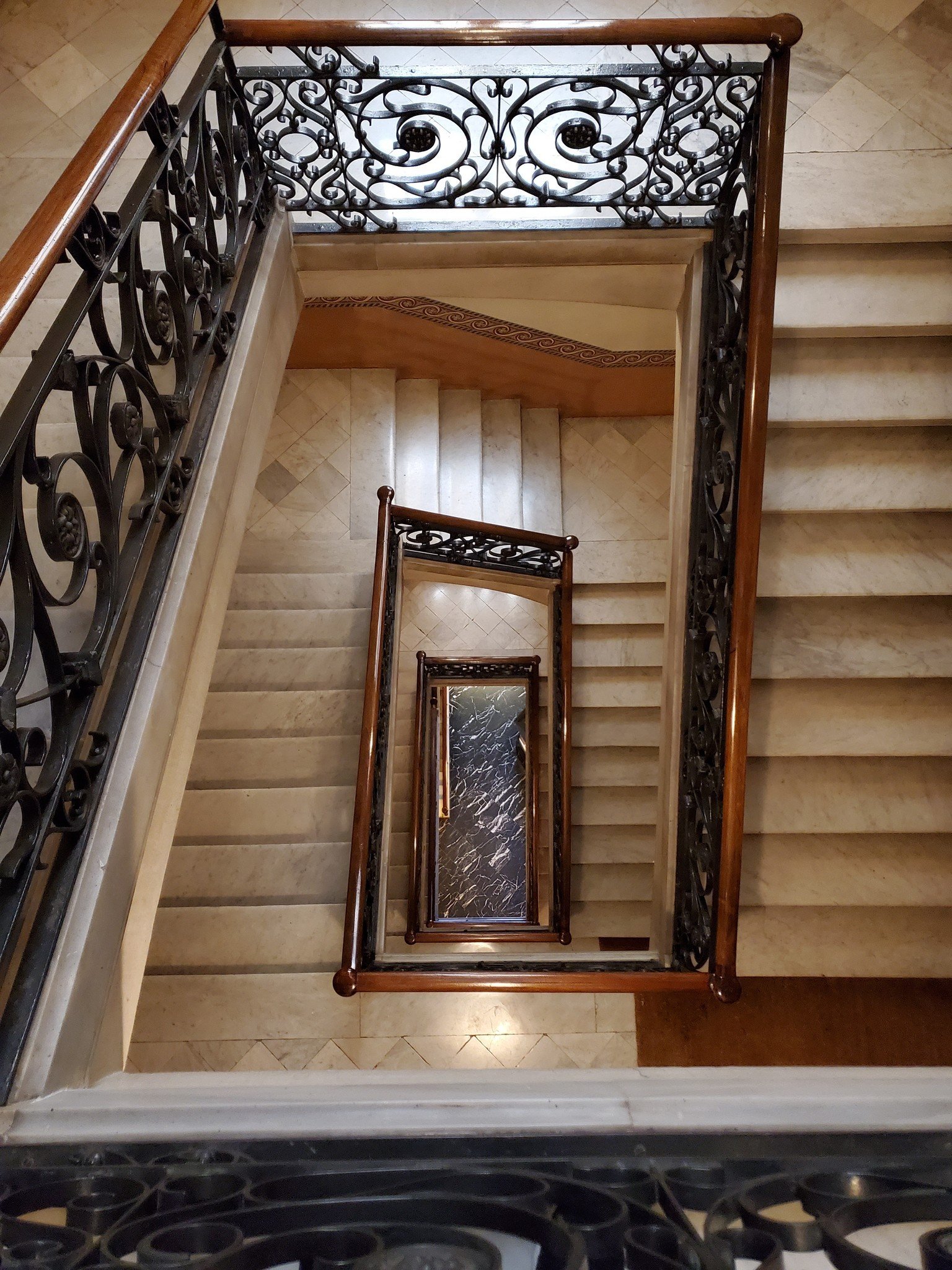Samsung Galaxy S10+ review, two months on: Still in the lead
Not much has changed: this is still an amazing phone.

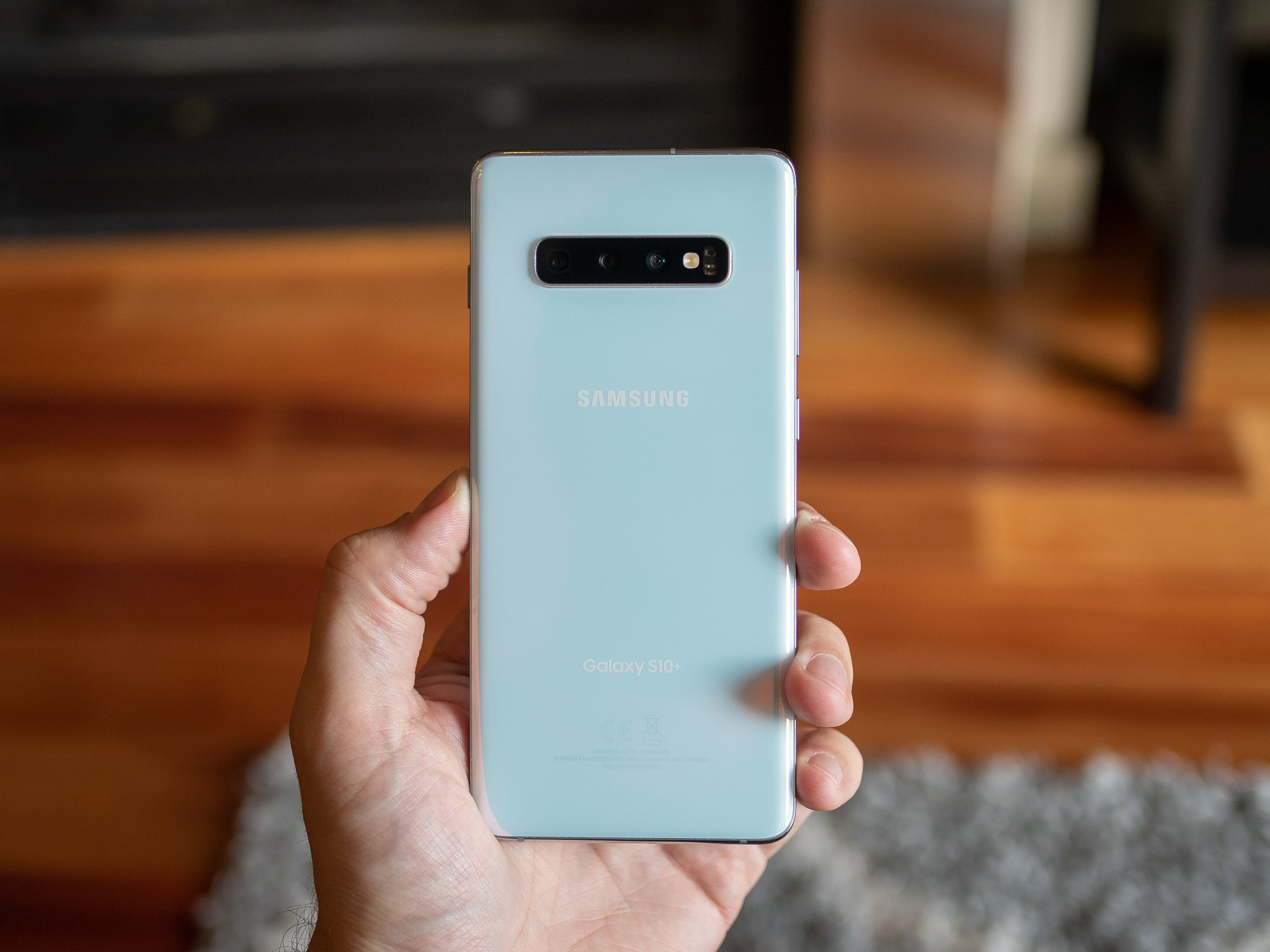
Samsung’s struggles with the Galaxy Fold may be top of mind right now when someone mentions the company’s smartphone business, but the reality is the Fold was always an insignificant side project in the grand scheme of all of the phones it’s selling. The consistent drumbeat of Galaxy S sales is what really drives Samsung’s mobile division; sure there was ample Day 1 hype for the Galaxy S10 series, but a vast majority of sales will come in the months after that initial launch cycle ends.
We first got our eyes and hands on the Galaxy S10 series at the very end of February, and I published a comprehensive review of the S10+ on March 7. Time flies, as they say, and all of a sudden I have two months of Galaxy S10+ use to reflect on. Since I received my Galaxy S10+ it’s been my “main” phone. Sure I’ve had detours along the way for other reviews, but each and every time, my SIM comes back to the GS10+ and I’ve constantly maintained it as such.
And it’s not just because of momentum or familiarity, or because I don’t have another option — I actually truly enjoy using the Galaxy S10+ each and every day. Here are all of the reasons why.
Still leading
Samsung Galaxy S10+
The best big flagship available.
Samsung charges top dollar for the Galaxy S10+, and it deserves it. It checks all of the boxes in design, features and capabilities, satisfying everyone’s needs as well as a single device can. Samsung’s strengths in hardware, display, performance and features really stand out, overshadowing what can be a sometimes-confusing software experience.
Samsung Galaxy S10+ What I still love
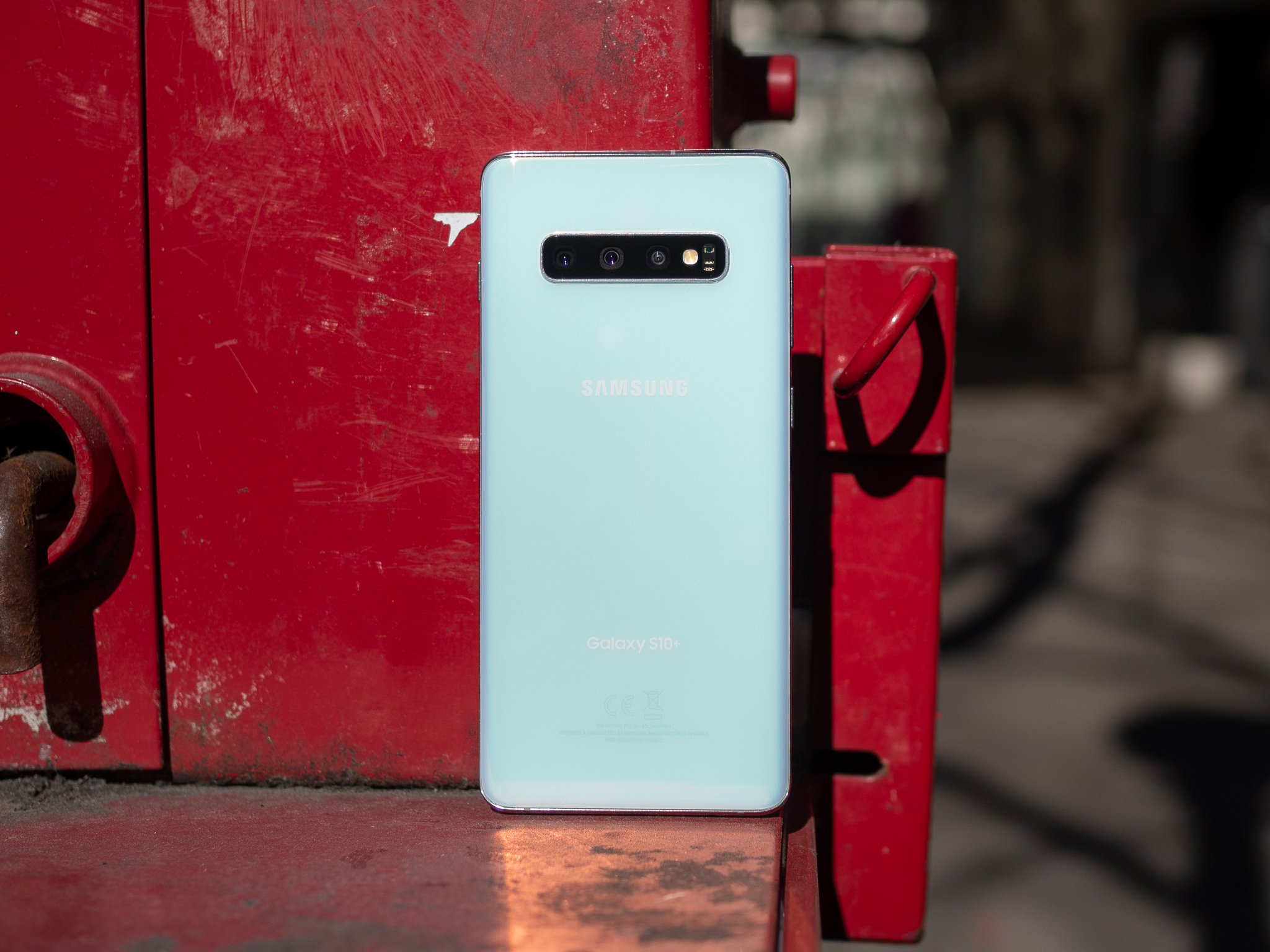
After two months with the Galaxy S10+, the positive column is considerably longer than the negative. I’m under no obligation to use any specific phone beyond its review period, so the fact that I’m sticking with the Galaxy S10+ given all of my other options is in itself a bit of praise. But there are specific reasons that really stand out.
Leaving a Samsung for any other phone immediately makes me miss the screen.
The biggest standouts that make the Galaxy S10+ so great for me are also Samsung’s biggest strengths in general: everything relating to hardware. The design is sleek and simple, and at this point, Samsung has the execution down perfectly. Sure it’s ostensibly a bit exposed and fragile, but this Galaxy S10+ has seen its fair share of drops and bumps and is no worse for it — these phones are more durable than they look. Aside from the flashy metal frame the design is rather simplistic, too, and just lets you focus on the part you care about: the display. And oh my, what a display it is. Leaving a Samsung phone for any other phone immediately makes me miss the screen. It’s so crisp, so colorful and so incredibly bright in all situations. I have yet to use a phone with display visibility in direct sunlight on the same level as Samsung’s.
Samsung’s hardware quality stands out, with the best display you can get and a full feature set.
The rest of the hardware experience works out seamlessly, and by that I mean I don’t have to think about anything — I just use the phone how I normally would, and it does everything I ask. The speakers are there, and they work well. There’s a headphone jack. There’s fast wireless charging. The buttons and ports are normal and right where you want them to be. Part of this is familiarity with the last several generations of Samsung phones, but these are also features that anyone can find value in; anything you can think of wanting from a phone of the last several years is right here for you to use as you always have.
Building on strengths in internal hardware, the next part of what makes the Galaxy S10+ great is its performance and battery life. Two months in, my Galaxy S10+ is still as consistently fast as it was the first two days. Sure some praise lands on the Snapdragon 855 processor, but Samsung’s decision to use 8GB of RAM and clearly heavily optimize its firmware have made a complete package. The “Device care” software features are a tad on the nagging side, and can turn into a rabbit hole if you start to tweak things, but there’s no doubt they’re actually having a positive effect in keeping the phone performant. I’ve railed on Samsung in the past for having troubles with phones slowing down over time, but I haven’t seen a single indication that that’s the case with the Galaxy S10+.
Consistently long battery life is one of the biggest reasons to stick with the Galaxy S10+.
The same applies to battery life, which has been stellar. This is one area I’ve been less and less willing to compromise on in the last couple years, and one of the biggest reasons I keep using the GS10+. The battery just doesn’t leave me stranded, and I never have to think about charging. It doesn’t matter how much I stream music throughout the day, use my hotspot, navigate with Google Maps, take phone calls, use the camera or anything else — I know I’m going to make it through the day. Even heavy travel days, which are my biggest test for phone batteries, the Galaxy S10+ handles without issue. I end most non-travel days with 40% or higher battery, and casual weekends leave me with upwards of 60%. The peace of mind that provides is incredibly satisfying.
Samsung has received plenty of criticism, mostly just, for not improving its cameras enough over the past two generations. The primary camera is effectively unchanged in that period, and it isn’t clear how much has been worked on in the software. But that really doesn’t matter; the experience and the photos do. And I’m still extremely happy with the camera experience as a whole on the Galaxy S10+.
I recognize that the GS10+ doesn’t reach the same heights as the Pixel 3 XL (or even Huawei P30 Pro) in outright shot-to-shot quality, and I do think Samsung has to push things forward further in the next generation. But that discussion is more shades of grey than black and white.
Don’t underestimate the importance of fast performance and consistent quality.
I take fantastic photos with the Galaxy S10+ that are crisp, bright and filled with color. Samsung’s software can still be a bit over-aggressive with smoothing out details, and can sometimes over-brighten images, but the overall look is extremely pleasing to the eye and holds up to close scrutiny when you pixel peep. And importantly, I very rarely feel the need to edit GS10+ photos before sending or sharing them — it’s only a want in some cases. The fundamentals of every photo are consistently strong, and there are rarely issues that force me to re-take or edit the shot.
You can’t overlook just how important speed and consistency are to the camera experience as well. Sure the GS10+ may not take the best possible shots in all situations, but it sure as hell takes photos consistently and predictably every single time you press the shutter, without any sort of stutter, delay or failure in any situation I’ve experienced.
The wild card for the GS10+ is the new ultra-wide camera, which picks up a considerable amount of slack left by the main camera not reaching the highest levels of quality. The Pixel 3 may have a better main camera, but there’s really no replacement for having the versatility and unique field of view offered by the wide-angle camera option. It’s frustrating that the wide camera doesn’t have the same exact sensor as the main camera, and lacks OIS, but those are small quibbles — this camera is a total blast to shoot with, and it’s tough to give it up when switching phones.
Samsung Galaxy S10+ What hasn’t aged as well
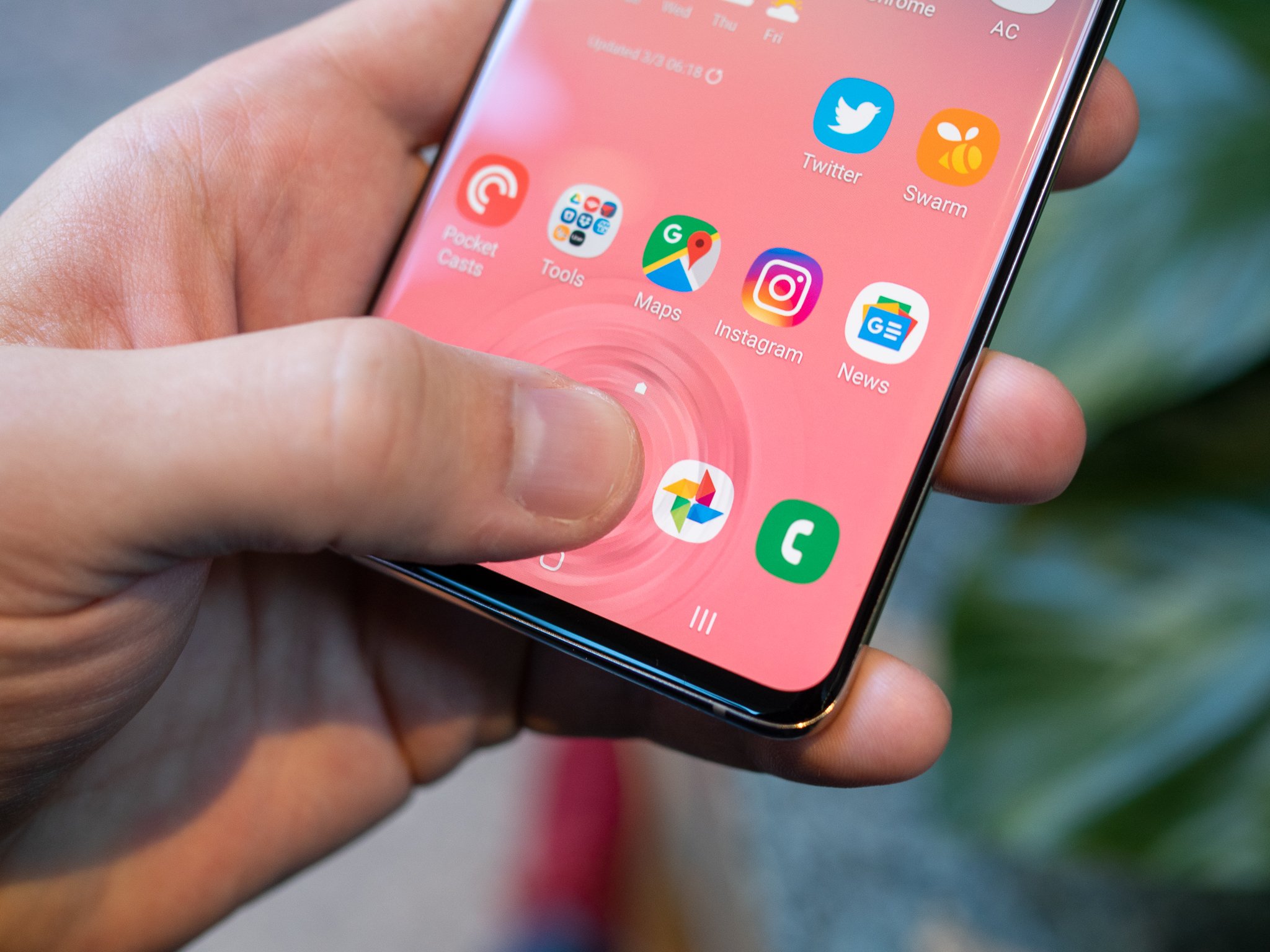
Low-light camera performance is stuck in the past, lapped by competitors using computational techniques.
Since I finished the last section focusing on the camera’s strengths, it’s fitting to start this one with a couple of the photographic weaknesses before we get any further. Samsung’s 2X telephoto camera really doesn’t feel like it’s adding much to the experience now, with weak quality in anything but the brightest of scenes — something exemplified by the camera app falling back to a digital crop on the main sensor a majority of the time. The telephoto is no longer used for Live Focus portrait mode effects either, so it doesn’t serve much of a purpose. Seeing how Huawei is innovating on zoom with the P30 Pro, it’s disappointing to see a plain old 2X camera taking up space in the phone.
The only other notably disappointing part of the camera experience is low light performance, which clearly lags behind the last couple years of developments from the competition. In Samsung’s attempt to brighten all of the photos the camera takes, it really misses the nuances of what’s needed to take great low-light photos with a small sensor. Dark scenes are typically addressed with a higher ISO and longer shutter speed — classic photography 101 — rather than advanced multi-frame processing, and that means you just get grainy and soft images. Typically manually adjusting ISO and exposure helps, and I’ve taken some really great low light photos with the GS10+, but the auto mode can’t handle difficult dark scenes well.
No discussion of Samsung’s shortcomings would be complete without getting into the software.
No discussion of Samsung’s shortcomings would be complete without getting into the software. Android 9 Pie on the Galaxy S10+ is easily Samsung’s best software to date, and is a notable step up from what the likes of LG and Huawei are putting out, but there’s still room for improvement. Just pick up a Google Pixel, OnePlus or Motorola phone and you’ll know what I mean — Samsung’s interface is still burdened with lots of features and options, and requires hours and hours of tweaking to make it “just work” the way others do out of the box. Options and features are great, but they’re also burdensome and overwhelming for the user when not introduced or managed gracefully.
Sure the software is less of an issue after two months than it is out of the box, as you’ve presumably come to terms with any issues you had early on and managed to get things set up just the way you want with time to customize. A friend recently got a Galaxy S10 — their first Samsung phone in a couple of generations — and was quickly unhappy with how cluttered and busy everything was compared to their Pixel. “I’m immediately reminded why I don’t like Samsung devices. It’s a mess.” they said. And that’s a common refrain that I hope Samsung is aware of. And even with my extensive history using Samsung phones, I still end up getting stumped or confused about certain features or settings.
The fingerprint sensor is a clear low point for the GS10+, and it’s something you use dozens of times a day.
How much Samsung’s software bothers you is up for interpretation, but one of the consistently weak parts of the Galaxy S10+ experience is the fingerprint sensor. Despite a handful of updates since launch, the in-display ultrasonic fingerprint sensor just isn’t as fast or consistent as even the most basic capacitive sensors we’ve become so accustomed to. The biggest issue is just how long it takes to recognize a fingerprint, coupled with how long it takes to reject a print. It adds so much uncertainty to the process every time you place your thumb on the screen, and that’s really unfortunate. Not having to shift your hand around and reach the back of the phone is definitely a positive in many situations, but when the process is this much of a mixed bag I’d still take a good rear-mounted sensor every time.
Samsung Galaxy S10+ Two months on
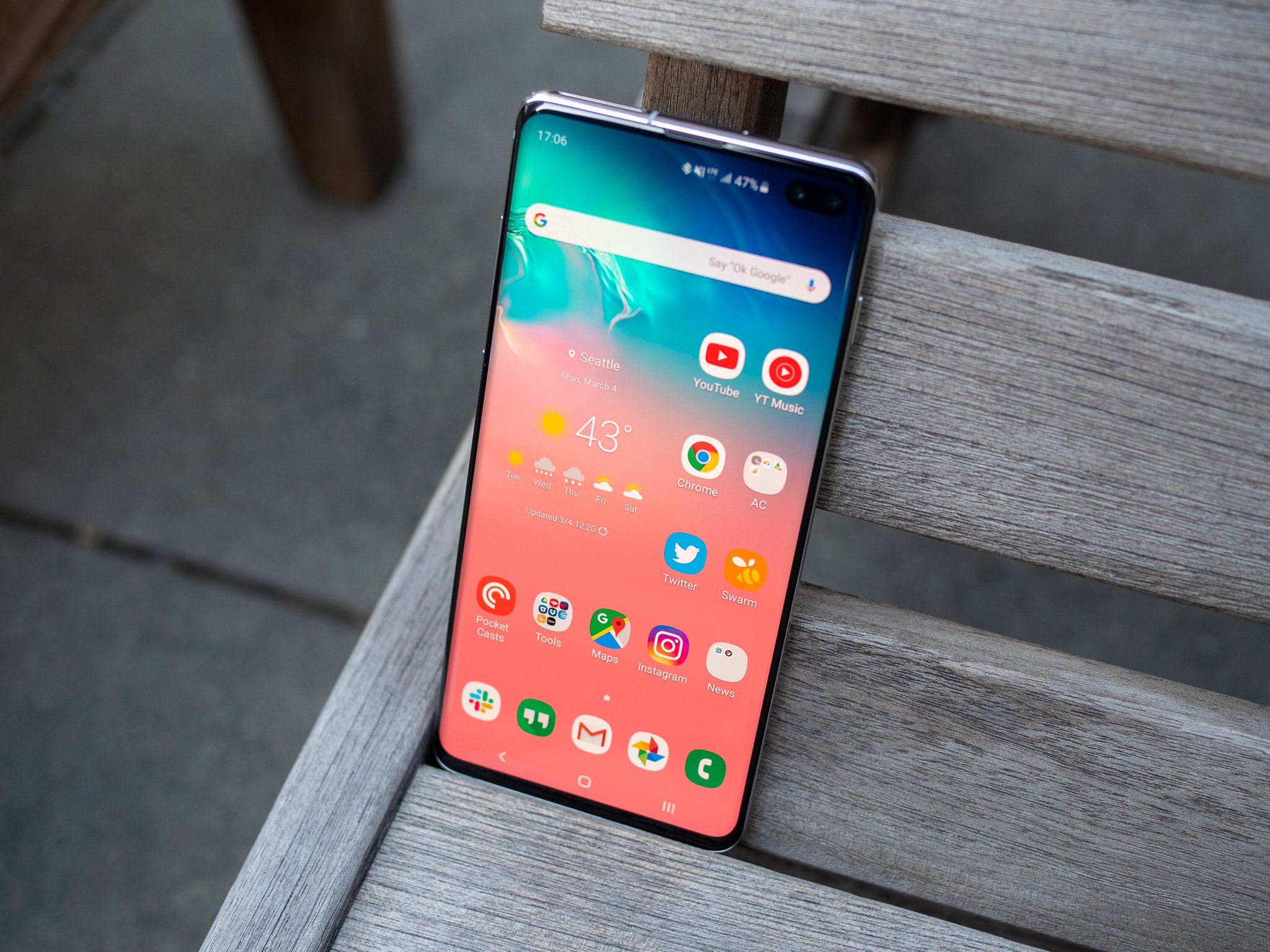
It’s unsurprising that two months with the Galaxy S10+ hasn’t changed my opinion on the phone in general. It’s only strengthened the conclusion I had back in March:
Without caveats or questions, I can recommend a Galaxy S10+ to anyone and not worry that it’ll be missing something they want or rely on in a modern high-end smartphone. Once you’ve found the Galaxy S10+ for yourself, there’s little reason to look any further.
The few, and relatively minor, shortcomings of the Galaxy S10+ are nothing that could ever detract from all of the great features and capabilities of this phone. Provided you’re willing to spend upwards of $1000 on any phone, the Galaxy S10+ is just as much of a clear buy two months in as it was from the launch.
Samsung Galaxy S10+
Samsung charges top dollar for the Galaxy S10+, and it deserves it. It checks all of the boxes in design, features and capabilities, satisfying everyone’s needs as well as a single device can. Samsung’s strengths in hardware, display, performance and features really stand out, overshadowing what can be a sometimes-confusing software experience.


